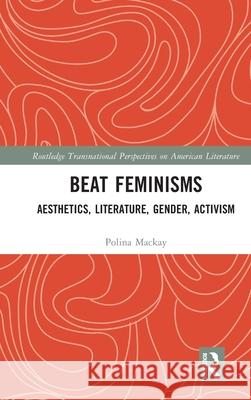Beat Feminisms: Aesthetics, Literature, Gender, Activism » książka
Beat Feminisms: Aesthetics, Literature, Gender, Activism
ISBN-13: 9780415892711 / Angielski / Twarda / 2021 / 172 str.
Beat Feminisms: Aesthetics, Literature, Gender, Activism
ISBN-13: 9780415892711 / Angielski / Twarda / 2021 / 172 str.
(netto: 723,00 VAT: 5%)
Najniższa cena z 30 dni: 680,04
ok. 22 dni roboczych.
Darmowa dostawa!
Examining a peculiarity in the legacy of the Beat Generation, this book considers the fact that a body of literature centered around the work of authors with misogynist tendencies such as William S. Burroughs, Allen Ginsberg, and Jack Kerouac has been a profound influence on later generations of female writers and artists who work through the prism of feminism. The study aims to show that the idea that the Beat Generation was a "boy gang" is a misconception forged by Ginsberg and others in the group, who not only marginalized female authors in their midst but also construed women as symbols of stagnation and domesticity. As early as the 1960s, female Beat writers attempted to express themselves not through the narratives of Beat sexual and social rebellions, but through feminist discourses which sought to free the woman from the patriarchal ideal of either mother or waiting maiden. MacKay argues that Beat women of later generations expand writing techniques they self-consciously inherit from male Beat writers, such as long breath lines in poetry and the cut-up technique. While Ginsberg and Burroughs utilize these to show the potentiality of the free mind, which has no social, sexual, or geographical limits, female authors apply them to interrogate gender as a fixed category. This study demonstrates that female authors who pay homage to male Beat writers often rearticulate and critique masculinist discourse while maintaining the spirit of defiance and resistance.











